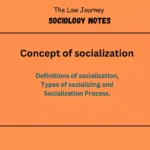According to Section 2(11) of the Consumer Protection Act, 2019, expression “deficiency” means any fault, imperfection, shortcoming or inadequacy in the quality, nature and manner of performance which is required to be maintained by or under any law for the time being in force or has been undertaken to be performed by a person in pursuance of a contract or otherwise in relation to any service and includes-
(i) any act of negligence or omission or commission by such person which causes loss or injury to the consumer; and
(ii) deliberate withholding of relevant information by such person to the consumer.
In a case for deficiency in services, the onus of proof is on the complainant to prove the deficiency. Failure of the complainant to prove negligence on the part of service provider, held service provider not deficient in service.”
Section 39 of the Consumer Protection Act, 2019 provides for the correction of deficiencies in services or goods by awarding compensation or other means specified only when the Consumer Forum finds deficiency.
Failure to erect and supply of the equipment in accordance with the provisions of the contract would constitute a breach of contract of sale and supply, but would not be considered a deficiency in service.
In H.V. Venkatasubbaiah v. Agrotechnical Industry, the complainant claimed that the respondent failed to deliver the tractor after payment of the consideration money. It was held that non-delivery of tractor is deficiency in service.
A. “Deficiency” – Electricity
In Haryana State Electricity Board v. Tanuj Rashi Poultry Farm, the disruption of electricity supply to the poultry farm for 25 days due to a burnt-out electricity meter was held to be a deficiency in service, and the complainant was awarded Rs. 75,000/- for the loss of 3080 birds. Disconnection without notice is deficiency in service. Furthermore, an unreasonable drop in voltage indicates a service defect.”
N. Kunchi Babu and Another v. The Managing Director and Co-Chairman of A.P. Transport Co., Hyderabad, and others, in which a girl child suffered burn injuries as a result of electrocution due to non-use of plastic pipe. The State Commission directed the respondent to pay compensation and medical expenses on the grounds of physical disability, hindering her chances of marrying and leading a normal life. The National Commission noticed that no evidence was presented to establish what her father’s or child’s income was, and so no case for increased compensation was made out. The appeal was dismissed.
In H.P. State Electricity Board v. Jaswant Rai Sood & another, it was held by the National Commission that the audit objection about imposition of sundry charges is not legally justified.
B. Telephones – Deficiency in service.
In Telecom Dist Manager v. KC Bhagathey, the failure of the department to act on the subscriber’s complaints notwithstanding the department’s issuance of disconnection notices determined to be a deficiency in service.
In Vijay Sethi v. Dist Manager, Telephones, the department did not unlock the STD lock that he had accidentally set, notwithstanding his proper application and payment of the requisite payments. It was held that the supply of Dynamic Code for the S.T.D. capability in Electronic Exchanges is now an inherent feature of telecommunications services.
Dynamic code Locking facility is a vital component of the service hired by the subscriber, and if a subscriber locks the STD facility mistakenly, inadvertently, or even carelessly, it is the responsibility of the telephone department to unlock the STD Dynamic Code upon payment of the required costs as per rules. Any excessive delay in unlocking the STD Dynamic Code would count as a patent deficiency in Service.
Similarly, it has been found that the non-disconnection of STD at the request of the subscriber is a deficiency in service.
In General Manager, Telecommunication Department v. Punjab Mandi Borrid, two telephone connections in the name of husband and wife were installed at business/residence respectively. the State Commission held that the complainant and her husband are subscribers of two different telephones in their individual and distinct capacities, and the term “subscriber” does not include relation of subscriber.
C. Banking and Financial Services
In State Bank of India v. Chemist Products, the complainant sought cash credit/bill-discounting facility from the respondent bank, which was subject to the condition that bills in respect of goods to be supplied to other parties be produced before the bank, and the bank would pay 75% of the bill amount to the complainant, with interest charged until the purchaser/party to whom goods were to be supplied made the payment against the bill.
The complainant was upset because one of these bills had not been paid. It was observed that there was an agreement between the complainant and the bank that the bank would pledge the bills and upon realisation of the money from the party concerned, the bank would give clearance for release of the goods, but, the bank had received the sum of two of the three bills, but without recognising it, the third bill granted approval for the release of goods in favour of the third party. It was held that the bank is patently guilty of deficiency in service. Compensation of Rs 15,000/- was granted.
Similarly, In State Bank of India v. TISCO Ltd., it was determined that sending a letter of credit to the incorrect bank amounted to deficiency in service.
In Bank of India v. Shri Vivek Bhandari’s Associates, It was observed by the Union Territory Consumer Disputes Redressal Commission, Chandigarh that because the cheque was lost by the bank in transit, there was a deficiency on the part of the bank and it could not refuse to credit the amount to the complainant. The District Forum correctly issued an direction to provide credit in the amount of Rs. 66,677. Further compensation cannot be granted since the interest has already been provided as compensation.
D. Insurance claim
In New India Assurance Co. Ltd. v. V. M. Lakhsmi, the respondent/ complainant had her cow insured for Rs. 3,000/-. Her cow was killed by panther/tiger while she was grazing. Following that, an insurance claim was submitted, which was denied by the appellant insurance company since the occurrence was not covered by the policy.
The State Consumer Dispute Redressal Commission held that clause 12 of the insurance policy states that the insurance company will not be liable in either case if the incident occurred within the forest area or more than 2 kilometres from the respondent/complainant’s house or the cow shed and as interpreted by the district forum, the incident occured in the forest area. Hence, the Insurance Company is not liable.
In National Insurance Co. Ltd. v. Dharmaraj, the car was insured with the appellant and sold to the complainant throughout the term of the insurance policy. However, soon after the purchase of the car, the plaintiff applied to the insurance company in the necessary form for the transfer of policy in his favour. Within four days, the automobile met with an accident. Because the car had been damaged, a claim was filed with the insurer.
However, the claim was rejected on the grounds that there was no transfer of insurance coverage as of the date of the accident. It was held by the Karnataka State Consumer Disputes Redressal Commission, Bangalore that once an application for policy transfer is made with the insurer, the insurance firm is obligated to transfer the policy and there is no justification to avoid its liability.
In New India Assurance Co. Ltd. v. Mukesh Construction Co., it was held by the National Commission that the Insurance Company was not justified in reducing and settling the insurance claim on non-standard basis for the reason that truck was overloaded.
In Hundilal Jain Cold Storage and Ice Factory (P) Ltd. v. Oriental Insurance Co. Ltd., cold storage building having capacity to store 95,000 quintals of potatoes was insured. One of the cold storage compressors stopped working, and the damage was reported to the insurer, who hired one surveyor after another. Despite surveyor findings in the complaint, the claim was not resolved, resulting in a negative impact on the claimant and, to some part, destroying him.
The National Commission found that, based on surveyor’s reports, the complainant’s claim could not be deemed to be fraudulent. Furthermore, because insurance policies were not given to the complainant, it was difficult to argue that so-called policy requirements were known to the complainant and were binding. As a result, the insurer was ordered to pay the complainant’s damages plus interest.
In the case of Branch Manager, National Insurance Co. Ltd. & another v. Sri Srinivasa Cotton Traders, cotton covered by the insurance policy was damaged in a fire that broke out in the godown due to an electrical short circuit. The surveyor gathered a sample of burnt cotton lint, sealed it in three separate polythene bags signed jointly with the complaint, and left one package with the complainant. A sample of this kind was given to the Indian Institute of Chemical Technology. According to the IICT report, fuel was used to start a fire. On the facts and circumstances, it was determined that no failure in service was committed.
E. Post Office
It has been held in a number of cases that the Postal Department has taken shelter under the provisions of Section 6 of the Indian Post Office Act, 1890, when the Government secured entire immunity for any Postal Department activity resulting in a loss to a customer. In reality, the then-Government declared the Postal Department completely free from any accountability to the people it served for consideration, even if such service was subsidised in respect of specific kinds of letter and postal products, etc., by Section 6. The letters were admittedly stamped and delivered late, resulting in a one-year delay in the recipient’s school career.
It was held in Superintendent of Post Offices v. Upbhokta Suraksha Parishad, that not doing something what one ought to do is also an act of wilful default and therefore, is covered by “wilful act”. Hence, compensation of Rs. 1,000/- was granted. In Ramgopal v. Director, Postal Services, failure to make an endorsement on a returned registered letter admittedly refused by the addressee has been held to be deficiency in service.
In Post-Master General of Rayagada v. Rubeen Sankar Patty, it has been held that cessation of interest in a Public Provident Fund Account on the plea of its closure without any endorsement in official records is deficiency in service.
Delay in delivery of telegram unless mala fide is not “deficiency” in service under the Consumer Protection Act.”
In The Chief Post Master & others v. M/s. Ensons Enterprises, a parcel was sent by speed post to be delivered to addressee, at New Delhi. But the parcel was not delivered to addressee. According to the State Commission, it is clear that the Government (Postal Department) is not liable for loss of any postal article unless such liability has been expressly assumed by the Postal Department, and no officer of the Postal Office shall be liable to pay for any loss, misdelivery, delay, or damage unless he caused the same fraudulently or by wilful act or default.
F. Housing – Deficiency
In Rajasthan Housing Board v. Ram Babu Gupta, It was held by the National Commission that deficiency in service on the part of the petitioner was writ large in not completing the construction within a reasonable time, making an offer to allot just a structure, and even after exercise of the option, in not allotting even the incomplete house, in the form of structure.
The National Commission in Dr. Sameer Kaushal v. Secretary, Housing and Urban Development to Government of Punjab & others, has held that allotment of plot for private nursing home, the mode of allotment by draw of lots instead of selection on merits cannot be said to be unjust or unauthorised. However, development authority was directed to return amount deposited by the appellant complainant with 6% interest.
Related Post | Deficiency
- Consumer Protection Councils
- Standard of Goods – Consumer Protection Act
- Consumer of Goods – Consumer Protection Act
- Rights and Duties of consumers | Consumer Movement
- Consumerism in India – Meaning | Need | Objects
- Political Notes
- Law of Torts notes
- RTI notes
- Legal History Notes
1. What is the definition of Deficiency under Consumer Protection Act, 2019?
According to Section 2(11) of the Consumer Protection Act, 2019, expression “deficiency” means any fault, imperfection, shortcoming or inadequacy in the quality, nature and manner of performance which is required to be maintained by or under any law for the time being in force or has been undertaken to be performed by a person in pursuance of a contract or otherwise in relation to any service and includes-
(i) any act of negligence or omission or commission by such person which causes loss or injury to the consumer; and
(ii) deliberate withholding of relevant information b
2. What are the services under which deficiency is mainly found?
The categories under which deficiency is mainly found are as follows:-
1. Electricity
2, Telephones
3. Banking and Financial services
4. Insurance
5. Post Office
6. Housing
Reference Books | Deficiency
- Consumer Protection Law by Dr.SC Tripathi
- Consumer Protection Act: A Commentary by G. B. Reddy
- Commentary on the Consumer Protection Act by J. N. Barowalia
- Consumer Protection (Law & Practice) by V. K. Agarwal




















